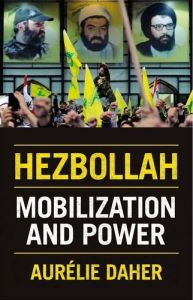Únase a getAbstract para acceder al resumen.

Únase a getAbstract para acceder al resumen.
Aurélie Daher
Hezbollah
Mobilization and Power
Oxford UP, 2018
¿De qué se trata?
Hezbollah and the Lebanese people have a complex political and social relationship.
Recommendation
Is Hezbollah a terrorist outfit in need of quashing or a people’s party that has stepped in where the Lebanese state failed? In this book, political scientist Aurélie Daher takes a deep dive into Hezbollah’s development and its connection to the Lebanese Shia community. Daher explains how Hezbollah shaped – and has been shaped by – the Lebanese political landscape since its beginnings in the 1980s. She also explores Hezbollah’s place in the larger context of Middle Eastern politics. Though not an easy read, this book gives fascinating insights into Hezbollah’s role in Lebanese history.
Summary
About the Author
Aurélie Daher is Assistant Professor at the Université Paris-Dauphine and a researcher at Sciences Po, specializing in Lebanese and Middle Eastern politics, Shiism and Hezbollah.



















Comment on this summary